
Tutors Talk (& Read) Books: Seth Appelbaum (A09)
Tutor
In this written and video interview, Santa Fe tutor Seth Appelbaum discusses and reads from Aristotle's "Nicomachean Ethics."
St. John’s offers what might be the strongest undergraduate philosophy curriculum in the world. Through it, we ask and attempt to answer weighty questions. What is the difference between science, knowledge, and opinion? What is characteristically human? What are the elements and the order of the soul? Whether by reading Genesis, Aristotle’s Metaphysics, Augustine’s Confessions, or Nietzsche’s Beyond Good and Evil, students strive to know themselves both inside and outside the classroom as they explore the most challenging works in philosophy, theology, and psychology.
NOTE
Philosophy, theology, and psychology are a few of the many subjects studied in the college’s interdisciplinary great books curriculum. There are no majors at St. John’s. Instead, students explore all these subjects over the course of all four years. Learn more about St. John’s classes.
Aeschylus Agamemnon, Libation Bearers, Eumenides, Prometheus Bound
Aristophanes Clouds
Aristotle Poetics, Physics, Metaphysics, Nicomachaen Ethics, On Generation and Corruption, Politics, Parts of Animals, Generation of Animals
Euripides Hippolytus, Bacchae
Homer Iliad, Odyssey
Plato Meno, Gorgias, Republic, Apology, Crito, Phaedo, Symposium, Parmenides, Theaetetus, Sophist, Timaeus, Phaedrus
Plutarch “Lycurgus,” “Solon”
Sophocles Oedipus Rex, Oedipus at Colonus, Antigone, Philoctetes, Ajax
Dante Alighieri Divine Comedy
Anselm Proslogium
Thomas Aquinas Summa Theologiae
Aristotle De Anima, On Interpretation, Prior Analytics, Categories
Augustine Confessions
Francis Bacon Novum Organum
Geoffrey Chaucer Canterbury Tales
Michel de Montaigne Essays
René Descartes Geometry, Discourse on Method
Princess Elisabeth The Correspondence Between Princess Elisabeth of Bohemia and René Descartes
Epictetus Discourses, Manual
Niccolo Machiavelli The Prince, Discourses
Maimonides Guide for the Perplexed
Plotinus The Enneads
Plutarch “Caesar,” “Cato the Younger,” “Antony,” “Brutus”
William Shakespeare Richard II, Henry IV, The Tempest, As You Like It, Hamlet, Othello, Macbeth, King Lear, Sonnets
Tacitus Annals
Virgil Aeneid
Hebrew Bible
New Testament
François de La Rochefoucauld Maxims
René Descartes Meditations, Rules for the Direction of the Mind
Aristotle Metaphysics, Nicomachean Ethics, On the Heavens, Physics, Rhetoric, Poetics
Thomas Hobbes Leviathan
David Hume Treatise on Human Nature
Immanuel Kant Critique of Pure Reason, Foundations of the Metaphysics of Morals
Gottfried Wilhelm Leibniz Monadology, Discourse on Metaphysics, Principles of Nature and Grace, Essays
John Locke Second Treatise on Government
John Milton Paradise Lost
Molière Le Misanthrope
Blaise Pascal Pensées
Jean-Jacques Rousseau Social Contract, The Origin of Inequality
Baruch Spinoza Theologico-Political Treatise, Ethics
Jonathan Swift Gulliver’s Travels
James Baldwin Stranger in the Village, The Fire Next Time
Joseph Conrad Heart of Darkness
Charles Darwin Origin of Species
Simone de Beauvoir The Second Sex
W. E. B. DuBois The Souls of Black Folk
William Faulkner Go Down, Moses
Sigmund Freud Introductory Lectures on Psychoanalysis, Mourning and Melancholia, Beyond the Pleasure Principle
Georg Hegel Phenomenology of Mind
Martin Heidegger Basic Writings, The Word of Nietzsche: God is Dead, Introduction to Metaphysics
Edmund Husserl The Crisis of the European Sciences and Transcendental Phenomenology
Søren Kierkegaard Philosophical Fragments, Fear and Trembling
Karl Marx Capital, The Economic and Philosophic Manuscripts of 1844, The German Ideology
Friedrich Nietzsche Beyond Good and Evil
Plato Phaedrus
Hannah Arendt The Human Condition
Albert Camus The Stranger
Georg Hegel Philosophy of Nature; Elements of Philosophy of Right
Martin Heidegger What is Metaphysics?
Laozi Dao De Jing
Ibn Mājah The Sunan
Friedrich Nietzsche Gay Science
Pre-Socratic Philosophers
Ranier Maria Rilke The Notebooks of Malte Laurids Brigge
Bertrand Russell An Introduction to Mathematical Philosophy
Voltaire Candide
Zhuangzi The Works of Zhuangzi
Emmanuel Levinas Totality and Infinity
Daode jing
Soren Kierkegaard Either/Or
Jean-Jacques Rousseau Emile
The Bhagavad Gita
Michel Foucault Discipline and Punish; Security, Territory, and Population
The information presented is for illustration purposes only and may not reflect the current reading list and preceptorial and study group offerings. Works listed are studied at one or both campuses, although not always in their entirety.

In this written and video interview, Santa Fe tutor Seth Appelbaum discusses and reads from Aristotle's "Nicomachean Ethics."

Unlike many of her fellow Hodson interns, Sophia Cote (A21) completed an art conservation internship with conservator Kenneth Milton in person.
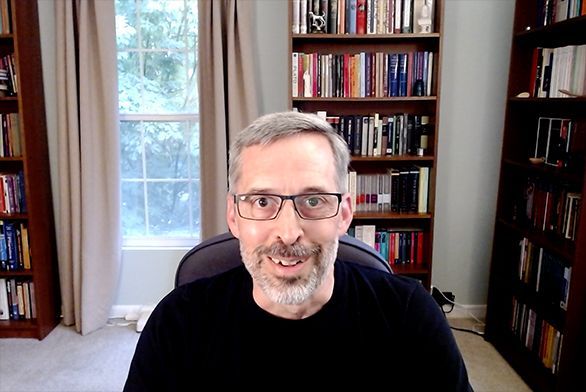
In this written and video interview, Annapolis tutor Jeff Black reflects on Nietzsche’s Thus Spoke Zarathustra, the permanence and impermanence of the Great Books, and more.

Since June 2020, Johnnies Eun Seo Oh (SF21), Minseok Kim (SF20), and Siwhan Cha (A23) have aimed to bring the joys of the Great Books to others with PhiloUs, a liberal arts education company.

Jeff Bausemer (SF11) specializes in health and wellness with a philosophical bent.
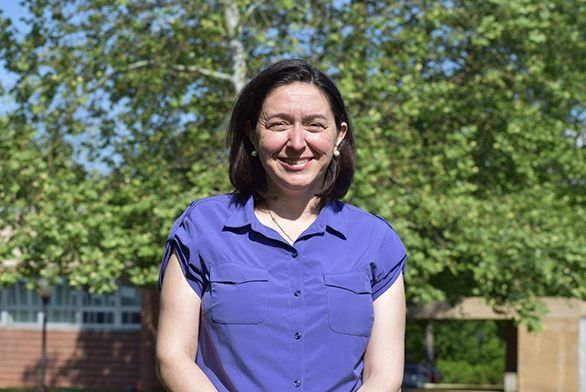
St. John's College tutor Zena Hitz (A95) earned a National Endowment for the Humanities Summer Stipend to finish writing a book on the intellectual life.

Jonathan Ignatius Green (AGI07) is the director of a new documentary film called “Social Animals.”

Adam Braus (SF08) is the curriculum developer at innovative institution Make School.

Omar Manejwala (A93) explains how the loss of a fellow Johnnie inspired him to become a leading expert on the treatment of mental health and addiction.
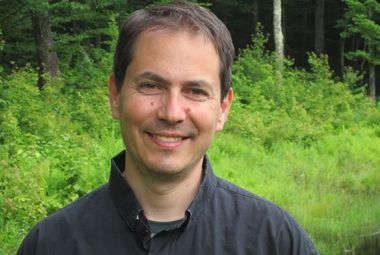
Nearly three dozen students received master’s degrees this summer from St. John’s College in Santa Fe and Annapolis.
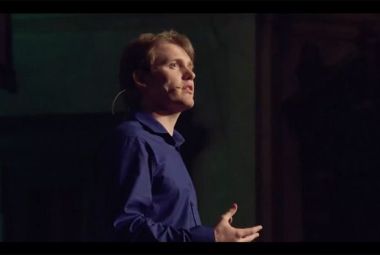
Cameron Byerly (A19) delivered a talk at a TEDx event this summer and spoke about the lessons he has learned at St. John’s.

Dan Lieberman (A85) recently wrote a book and delivered a TEDx talk on dopamine, a chemical that can play a powerful role in human behavior.
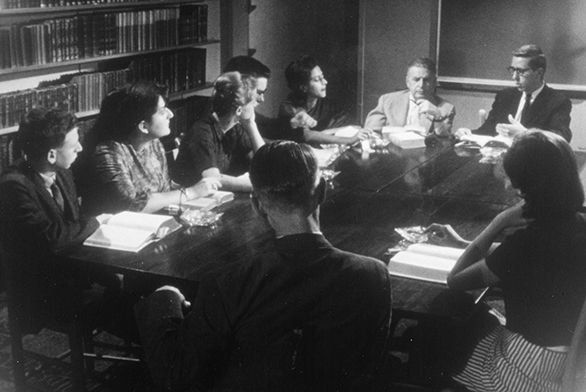
Refugee tutors once formed the backbone of St. John’s College.

A member of the St. John’s Communications team embarked on an eight-day, 2,544-mile journey between the college’s campuses in Annapolis and Santa Fe.

Charles Zug (A15) will deliver the lecture titled “From Nature to History: The Search for Intelligible Necessities in Thucydides, Machiavelli, and Nietzsche” on July 12 in Annapolis.

Zoe Collins (A18) and Elaina Bowman (A20) completed Hodson Internships over the summer at House of Ruth in Baltimore.

Dozens of Santa Fe students spent their summers at internships and fellowships all over the world.

The history of the Eastern Classics program in Santa Fe is discussed in the Fall 2017 issue of The College magazine.

When Santa Fe alumnus Brian Lee McMahon puts theory into practice, an entire town’s water supply is at stake.

Matthew Gioia (EC09) is director of admissions at Hudson Valley Sudbury School in New York, where students learn their own way.

Qiubai Jiang (SF19) studied the development of Christianity in China last summer during an Ariel Internship at the Big Data Research Center in his hometown of Chengdu.
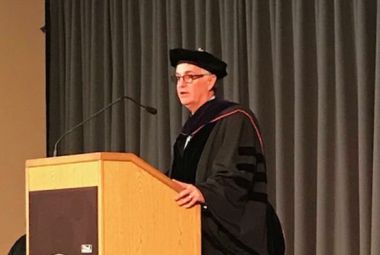
Nearly two dozen January Freshmen enrolled this spring on the Santa Fe campus.
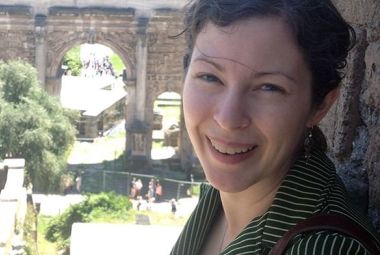
St. John’s College alumna Mary Townsend (A04) recently completed her first book, The Woman Question in Plato’s Republic.

Shannon Wiltsey Stirman (SF97) works to deliver the most effective treatments possible to PTSD patients nationwide.
The Hodson and Ariel Internship Programs support Johnnies who want to pursue internships that would otherwise be unpaid.
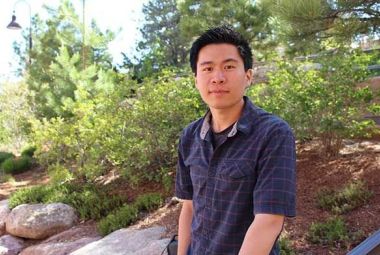
Peerawat Chiaranunt (SF17) will be taking his passion for theology to Yale Divinity School in the fall to pursue a master’s degree in religion and literature.

Tutors Talk Books is a series of interviews with St. John’s College tutors. In this installment, we catch up with Patricia Locke.
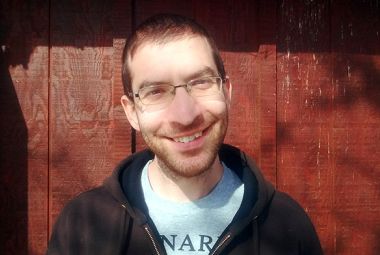
Yosef Trachtenberg (A15) writes about how St. John’s changed his life.

In the second installment of our new Tutors Talk Books series, we catch up with Santa Fe tutor Maggie Evans McGuinness.
The Hodson and Ariel Internship Programs support Johnnies who want to pursue internships that would otherwise be unpaid.
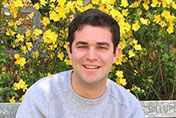
After graduation, student Joe Kensok (A16) will serve as the assistant director of enrichment at a middle school in Milwaukee.
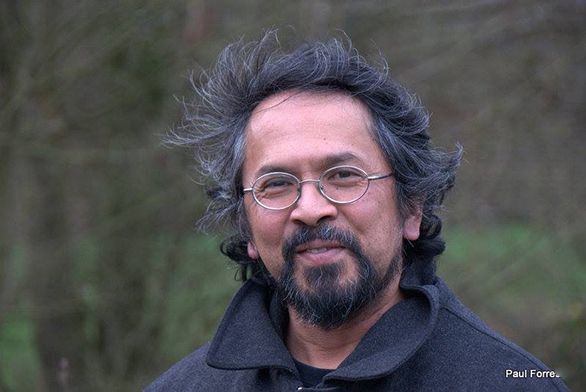
“Tutors Talk Books” is a series of interviews with St. John’s College tutors. Today we feature Krishnan Venkatesh.
The Hodson and Ariel Internship Programs support Johnnies who want to pursue internships that would otherwise be unpaid.
The Hodson and Ariel Internship Programs support Johnnies who want to pursue internships that would otherwise be unpaid.
The Hodson and Ariel Internship Programs support Johnnies who want to pursue internships that would otherwise be unpaid.
The Hodson and Ariel Internship Programs support Johnnies who want to pursue internships that would otherwise be unpaid.
The Hodson and Ariel Internship Programs support Johnnies who want to pursue internships that would otherwise be unpaid.
The Hodson and Ariel Internship Programs support Johnnies who want to pursue internships that would otherwise be unpaid.
The Hodson and Ariel Internship Programs support Johnnies who want to pursue internships that would otherwise be unpaid.